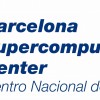-
Studies
-
Masters
- Do you want to study a Master Degree?
- Master in Informatics Engineering
- Master in Informatics Engineering - Industrial Modality
- Master in Innovation and Research in Informatics
- Master in Artificial Intelligence
- Master in Cybersecurity
- Master in Data Science
- Erasmus Mundus Master in Big Data Management and Analytics
- Master in Urban Mobility
- EUMaster4HPC
- Other Masters
-
Masters
-
Mobility
- Research
- Companies
-
The FIB
- Studies
- Bachelor's degrees
- Masters
- Do you want to study a Master Degree?
- Master in Informatics Engineering
- Master in Informatics Engineering - Industrial Modality
- Master in Innovation and Research in Informatics
- Master in Artificial Intelligence
- Master in Cybersecurity
- Master in Data Science
- Erasmus Mundus Master in Big Data Management and Analytics
- Master in Urban Mobility
- EUMaster4HPC
- Other Masters
- Academic Management
- Grants and Financial Aid
- Mobility
- Research
- Companies
- The FIB
Upcoming Severo Ochoa Seminars in March
You are here
You are kindly invited to our two next Severo Ochoa Seminars in March: "Using an integrated implementation and specification language to design DSLs for HPC applications" and "Cloud: The Next Disruption in HPC".
Monday 05 March 2018

Cloud: The Next Disruption in HPC
Date: 13th March 2018 Time: 11:00 a.m. to 12:00 a.m.
Abstract
Through his career, Gabriel Broner lived through multiple disruptions in high performance computing. At Cray he was involved in the move from proprietary architectures to parallel systems with industry standard CPUs and memory. At SGI he was part of moving from proprietary operating systems to Linux. In the last year he joined Rescale convinced that cloud is the next disruption in HPC.
In this talk, you will hear a brief historical perspective, why cloud is the next disruption in HPC, and how things change for HPC from on premises to the cloud.
Short Bio
Gabriel Broner is Vice President and General Manager of High Performance Computing at Rescale. Prior to joining Rescale in July 2017, Gabriel spent 25 years in the industry as operating system architect at Cray, general manager at Microsoft, head of innovation at Ericsson, and vice president and general manager of high performance computing at SGI/HPE.
Using an integrated implementation and specification language to design DSLs for HPC applications
Date: 6th March 2018 Time: 11:30 a.m. to 12:30 a.m.
Abstract
Magnolia is an integrated specification and programming language developed at BLDL. It has a library centric design and is geared for extreme generic reuse of modules. As such it is a framework for exploring and designing domain specific languages (DSLs). This gives Magnolia some interesting properties for the high performance computing (HPC) domain:
- It is a test bed for programming models, e.g., for locality control.
- It has features for exploring and validating the correctness of code and code transformations.
- It supports abstraction at all levels, e.g., the layered coordinate-free numerics architecture for solving partial differential equations (PDEs).
We will illustrate some ideas with PDE solvers for Burgers' equation and the elastic wave equation (used in seismic simulations).
Short Bio
Magne Haveraaen received his PhD from the University of Bergen where he is professor in computer science and head of Bergen Language Design Laboratory (BLDL). His research interests include domain engineering, software security and safety and programming models.
Where we are
C/Jordi Girona Salgado,1-3
08034 BARCELONA Spain
Tel: (+34) 93 401 70 00
Contact with us
© Facultat d'Informàtica de Barcelona - Universitat Politècnica de Catalunya - Website Disclaimer - Privacy Settings












